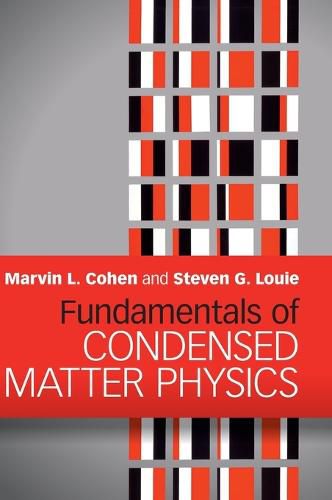Readings Newsletter
Become a Readings Member to make your shopping experience even easier.
Sign in or sign up for free!
You’re not far away from qualifying for FREE standard shipping within Australia
You’ve qualified for FREE standard shipping within Australia
The cart is loading…






Based on an established course and covering the fundamentals, central areas and contemporary topics of this diverse field, Fundamentals of Condensed Matter Physics is a much-needed textbook for graduate students. The book begins with an introduction to the modern conceptual models of a solid from the points of view of interacting atoms and elementary excitations. It then provides students with a thorough grounding in electronic structure and many-body interactions as a starting point to understand many properties of condensed matter systems - electronic, structural, vibrational, thermal, optical, transport, magnetic and superconducting - and methods to calculate them. Taking readers through the concepts and techniques, the text gives both theoretically and experimentally inclined students the knowledge needed for research and teaching careers in this field. It features 246 illustrations, 9 tables and 100 homework problems, as well as numerous worked examples, for students to test their understanding. Solutions to the problems for instructors are available at www.cambridge.org/cohenlouie.
$9.00 standard shipping within Australia
FREE standard shipping within Australia for orders over $100.00
Express & International shipping calculated at checkout
Based on an established course and covering the fundamentals, central areas and contemporary topics of this diverse field, Fundamentals of Condensed Matter Physics is a much-needed textbook for graduate students. The book begins with an introduction to the modern conceptual models of a solid from the points of view of interacting atoms and elementary excitations. It then provides students with a thorough grounding in electronic structure and many-body interactions as a starting point to understand many properties of condensed matter systems - electronic, structural, vibrational, thermal, optical, transport, magnetic and superconducting - and methods to calculate them. Taking readers through the concepts and techniques, the text gives both theoretically and experimentally inclined students the knowledge needed for research and teaching careers in this field. It features 246 illustrations, 9 tables and 100 homework problems, as well as numerous worked examples, for students to test their understanding. Solutions to the problems for instructors are available at www.cambridge.org/cohenlouie.